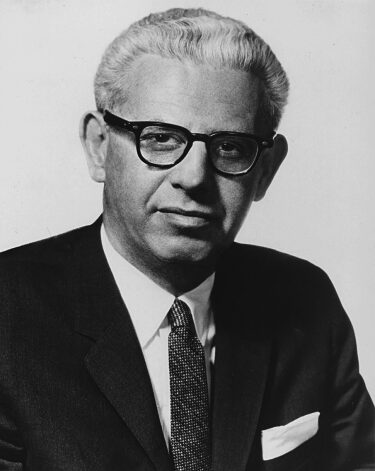Arthur J. Goldberg*
Class of 1968
- Permanent Representative of the United States to the United Nations
Only in this country could the son of immigrants be named to the highest court in the land.
Arthur Goldberg was born in 1908 on the West Side of Chicago. He was the youngest of eight children born to an immigrant Russian-Jewish family. His family came to the United States in the late 1890s and settled in the poverty-stricken slums of Chicago.
Goldberg was the only member of his family who attended high school, from which he graduated valedictorian. Working nights and weekends, he struggled through college before finally graduating from Northwestern Law School in 1930 at the top of his class.
He is credited with having masterminded the merger of the American Federation of Labor and the Congress of Industrial Organizations. He was U.S. secretary of labor during the Kennedy administration, was a U.S. Supreme Court justice, and served as U.S. ambassador to the United Nations. Throughout his career, Goldberg fought for collective bargaining and against Communist influences.

